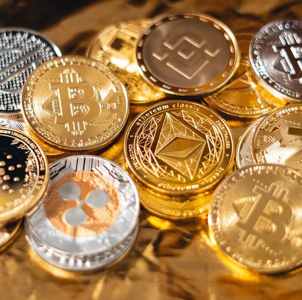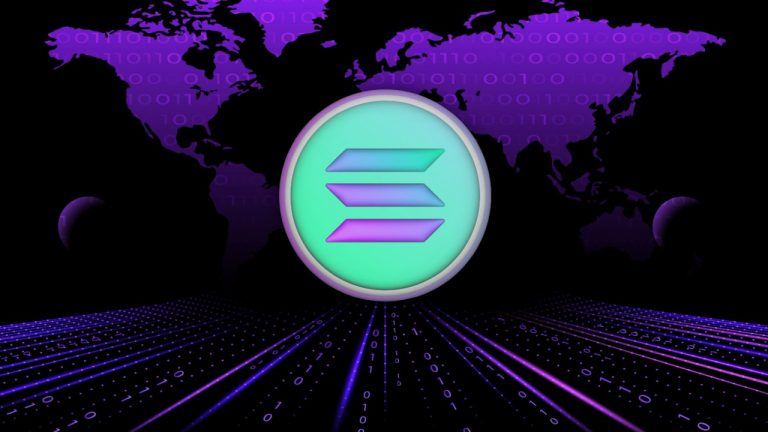Integrating Real World Assets into Modern Crypto Investment

That said, the benefits of jumping on cryptocurrency early will far outweigh the cost of researching and learning how blockchain works. In terms of popularity and security, crypto has seen a large influx of financial institutions entering the space using it for investments, but also as stores of value. Big investors have begun tokenizing real world assets like real estate, art, luxury vehicles, etc. as an alternative to traditional banking. In this article, we’ll focus on the tokenization of real world assets; how it works, security considerations, ease of use, and why financial institutions are opting for tokenization over traditional stores of value.
Asset Tokenization and Its Importance as Crypto Investment
The tokenization of assets is growing fast in the world of blockchain, and it has a lot more potential in various industries than people initially thought. People have put money into these kinds of investments because they can make trades go through more quickly and/or because they’ll be able to reach out to investors who live anywhere in the world. But even though plenty of individuals now find tokenized assets valuable, they’re not sure what these assets are or why they’re useful. Our stance on asset tokenization is that it could completely change how capital markets work. We’ve got some good reasons for believing this which we’ll share with you here.
When an asset gets tokenized, it means that instead of having rights to the object itself (like a house), you get rights to a digital representation of those rights — this could be because owning the digital thing is actually handier than having it exist physically, for some reason. It also means that ownership can be split into smaller portions and given to different people in a straightforward way.
Existing assets can be tokenized by representing them digitally on a blockchain — using decentralized tech. This just means that when something’s tokenized, you have the same levels of ownership over it (and control with regards to what happens to all aspects of whatever-it-is) as you would if it were physical; however, there are lots more possibilities! A really cool example? If property rights were turned into tokens that lived on a blockchain, then anyone who owned part or all of those tokens could sell their stake in the property without having to deal with banks or lawyers at all
Making an asset into tokens means more people can invest in it. Those tokens stand for something concrete — which could be good news for businesses if what’s being tokenized are shares in the company: It might make things easier (and cheaper) for them to raise funds from lots of different people (‚crowdfunding‘).
Advantages of Tokenizing Real-World Assets:
The crypto market could be improved by tokenization, which is the process of changing physical assets into blockchain assets. Tokenization has many benefits: it makes the financial system easier to understand because all of the steps — such as where something comes from and how it is traded — happen at once as part of the blockchain.
A lot goes into tokenizing real-world assets. You need to decide if the tokens will be something people can exchange for other items or not (like shares of a company), pick a blockchain to create them on, find someone who can confirm that what the token represents in real life matches up (referred as an off-chain asset), and then make the tokens themselves.
Transparent record-keeping that cannot be changed and does not depend on one person or organization is another thing that makes blockchains special. This quality gives users more confidence because they know no one can mess with their stuff and everyone can see all of the important information about their item’s history and ownership.
Did you know tokenizing real-world assets can benefit investors in several ways? The benefits are as follows:
- Tokenization through crypto exchanges and blockchain technology makes assets available globally, breaking down barriers that once restricted them to specific markets. This process allows investors from worldwide to own and trade these assets, expanding the market significantly.
- Tokenizing real-world assets also fuels innovation in decentralized finance (DeFi). It allows for new financial products and services that use tokenized assets as collateral or investment options. These advancements improve the efficiency, transparency, and accessibility of financial markets for crypto investors.
- Numerous valuable assets face a challenge: there is not enough trustworthy information available readily about their returns, ownership history, sales history, and other crucial details that users rely on to make smart economic choices. This problem is even more pressing when dealing with assets from another country or when buyers can not inspect them in person before buying. Real-world assets tokenization offers a solution that enables transparent tracking and auditing of all these records. This transparency is possible because many blockchains are fundamentally public.
- Tokenized assets are tradable on blockchain platforms, speeding up transactions and making them more efficient. The tokenization of real-world assets lets crypto investors tap into real estate or artwork, which were traditionally hard to sell or buy. This newfound accessibility can draw more investors into the crypto market.
Conclusion
Real-world asset tokenization relies on blockchain technology, which is its foundation. Blockchains are digital records of transactions and asset balances spread across multiple computers, creating an unchangeable database that serves as a single, trusted source of information. This technology supports cryptocurrencies like Bitcoin and Ether, offering a secure and transparent decentralized system for tracking token ownership and transfers. Because most blockchains are decentralized, no single entity can manipulate the record, which boosts asset security and reduces the risk of fraud.


